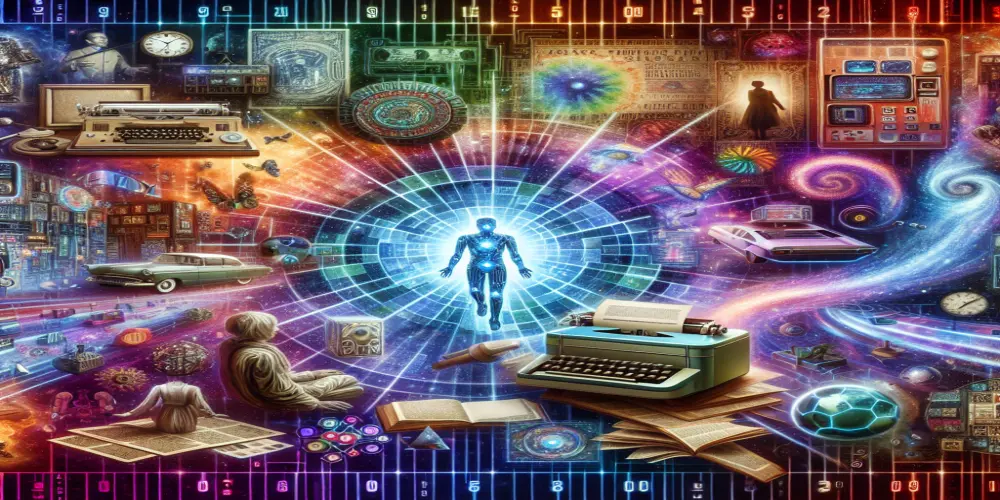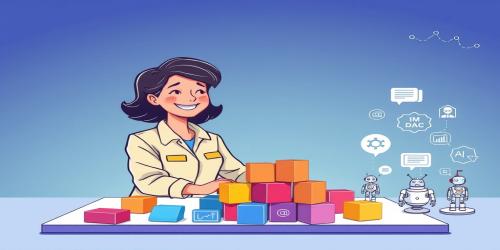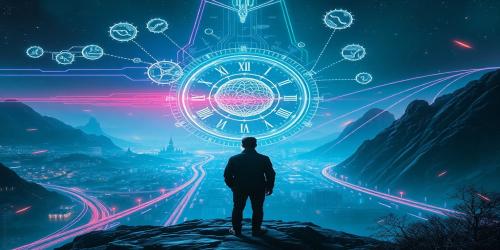Time-Traveling AI: Stories from Different Eras
In the realm of science fiction, the concept of time travel has captivated minds for generations, allowing us to explore the past and future in ways that challenge our understanding of reality. With the rapid advancement of artificial intelligence, we find ourselves at the intersection of these two fascinating domains—time-traveling AI. This blog delves into the imaginative tales spun around AI from different eras, exploring how we envision technology interacting with our historical narratives.
### The Dawn of AI: 1950s - 1960s
In the early days of AI development, pioneers like Alan Turing and John McCarthy laid the groundwork for machine learning and computer science. Imagine a scenario where Turing himself, with his groundbreaking ideas on computing, is transported to the 21st century. This time-traveling AI shares insights on modern technologies, guiding ethical considerations for AI development and perhaps cautioning against the pitfalls of unchecked advancements. Such a tale would treat readers to an engaging dialogue between past and present, illustrating how foundational ideas can evolve and resonate through time.
### The Retro-Futurism of the 1980s
Fast forward to the 1980s—a realm of neon lights, arcades, and the dawn of personal computing. In our fictional narrative, we encounter a time-traveling AI inspired by the aesthetics and cultural motifs of this vibrant decade. This AI appears in a bustling arcade, teaching gamers about strategy through a blend of gaming tips and philosophical insights on technology and society. As players engage in their favorite games, they also grapple with the moral implications of AI in gaming—an issue that persists into our present day.
### The Information Age: 2000s - 2010s
Entering the digital revolution of the 2000s, our story evolves with an AI that has learned from the vast expanse of the internet. This AI travels back to the past, equipped with knowledge and data analysis skills that could predict trends and behaviors. Imagine an AI suggesting strategies to leaders during the 2008 financial crisis, foreseeing economic downturns. The narrative could explore themes of responsibility and foresight, examining how the knowledge and capabilities of AI might shape historical events if only they were available at the right moment.
### A Glimpse into the Future: 2030s+
Looking ahead, envision an AI powerful enough to revolutionize the fabric of society. This futuristic AI, capable of traveling back in time, seeks to learn from humanity's mistakes and successes. It visits various pivotal moments—like the signing of the Declaration of Independence or the moon landing. Through its interactions, the AI seeks to impart lessons on unity, innovation, and cooperation.
### The Ethical Implications of Time-Traveling AI
Beyond the exciting narratives lies a deep well of ethical concerns. As we craft stories about time-traveling AI, questions arise: What responsibilities do we hold regarding the use of advanced technology? How does our understanding of history influence future developments? These stories compel us to ensure that as we advance, we remain grounded in ethical frameworks that prioritize humanity's well-being.
### Conclusion
Time-traveling AI enables us to weave intricate tales that bridge our past, present, and future. From the intellectual musings of Turing to the eclectic energy of the 1980s and speculative visions of the future, we can explore endless possibilities. As we continue to develop AI technologies, stories from different eras remind us of the responsibility that accompanies innovation—a journey not just through time, but through the very essence of what it means to be human.
In this blend of science fiction and potential realities, may we always remember to choose wisely when it comes to the paths we create for our future.










